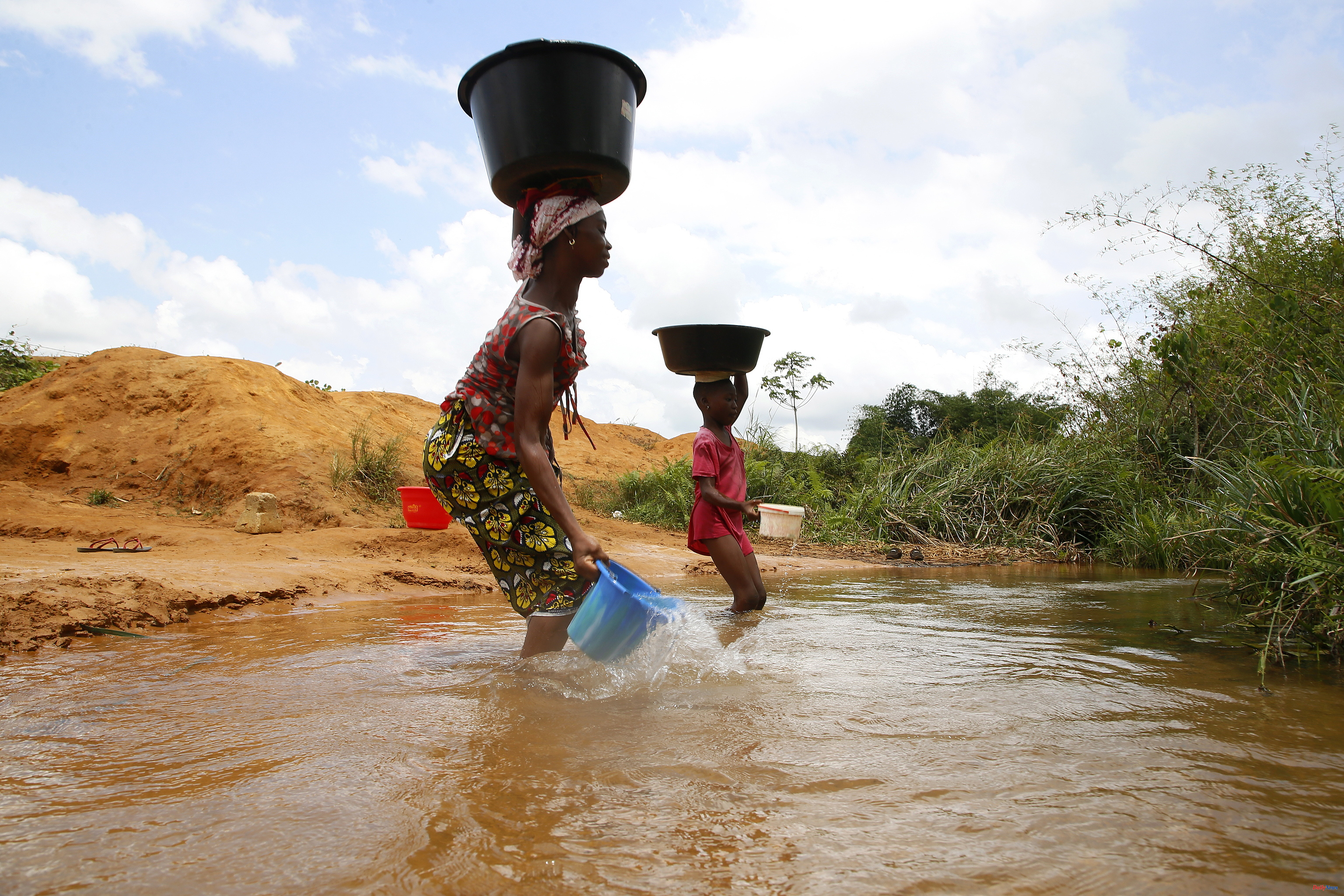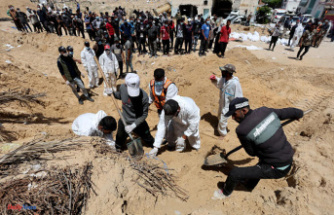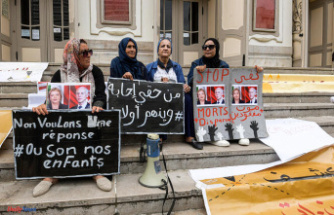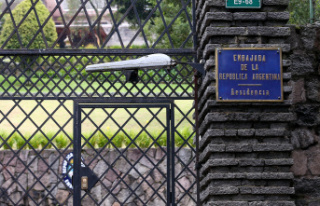A new report released on Tuesday, on the eve of the first United Nations Water Conference in more than 45 years, says that 26% of the world's population does not have access to safe drinking water and 46% lack access to basic sanitation facilities.
The United Nations World Water Development Report 2023 painted a dark picture of the huge gap that needs to be filled to meet the UN goals of ensuring everyone's access to clean water and sanitation by the year 2030.
Richard Connor, the report's editorial director, told a news conference that the estimated cost of meeting the goals is between $600 billion and $1 trillion a year.
But Connor said it's just as important to forge partnerships with investors, financiers, governments and climate change communities to ensure funds are invested in ways that are environmentally sustainable and capable of providing water to the 2 billion people without access, and sanitation for 3.6 billion people in need.
According to the report, water use has increased globally by around 1% per year over the past 40 years, "and is projected to increase at a similar rate through 2050, driven by a combination of population growth, socioeconomic development and changes in consumption patterns.
Connor noted that the current increase in demand is occurring in developing countries and emerging economies, where it is driven by industrial growth and particularly by rapidly increasing populations in cities. It is in these urban areas "where there is a real increase in demand," he said.
With agriculture using 70% of the world's water, crop irrigation needs to be more efficient, such as drip irrigation used by some countries, which saves a lot of water, Connor said. "That makes water available to cities," she said.
As a result of climate change, according to the report, "seasonal water scarcity will increase in regions where it is currently plentiful, such as central Africa, eastern Asia, and parts of South America, and worsen in areas where water is already scarce." , as in the Middle East and the African Sahara".
The global urban population suffering from water scarcity is projected to double, from 930 million in 2016 to 1.7-2.4 billion people in 2050. The increasing incidence of extreme and prolonged droughts is also stressing ecosystems, with dire consequences for plant and animal species.
UNESCO Director General Audrey Azoulay considers it "urgent" to establish strong international mechanisms to prevent the global water crisis from spiraling out of control. "Water is our common future and it is essential to act together to share it equitably and manage it sustainably," she said.
For his part, the president of UN-Water and general director of the International Labor Organization, Gilbert F. Houngbo, has assessed that "much remains to be done." "Time is not on our side", he has warned, while he has stressed that it is time to unite and accelerate action. "This is our moment to make a difference," he insisted.
The document reflects that almost all interventions related to water imply some type of cooperation, since, for example, crops require shared irrigation systems or that supplying safe and affordable water to cities and rural areas is only possible through management communal water supply and sanitation systems.
The report argues that cooperation between these urban and rural communities is essential to maintain both food security and farmers' incomes.
Likewise, he admits that the management of international rivers and aquifers complicates things even more, but cooperation in transboundary basins and aquifers brings "many benefits" beyond water security, including the opening of additional diplomatic channels, but only 6 of them. the world's 468 internationally shared aquifers are the subject of a formal cooperation agreement.
Among the most prominent shared benefits in the report are environmental services such as pollution control or the enrichment of biodiversity and opportunities to share data, information and co-financing.
For this reason, the document advocates inclusive stakeholder engagement that also fosters acceptance and ownership; By involving end users in the planning and implementation of water systems, it creates services that are better suited to the needs and resources of poor communities, and increases public acceptance and ownership.
Likewise, the work considers that inclusive participation also promotes responsibility and transparency and gives an example of the displacement camps in the Somali region of Gedo, where residents elect water committees that manage and maintain water points that supply dozens of of thousands of people.
According to the criteria of The Trust Project












